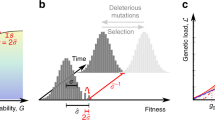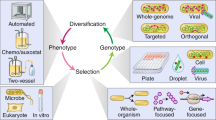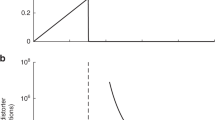Abstract
MR. R. H. LOCK at the close of his letter in NATURE of October 17 (vol. lxxvi., p. 616) makes a remark which, after some consideration, still perplexes me. The question involved is so interesting and, indeed, important, that I feel sure that many of your readers would be glad to know the grounds, doubtless not without weight, which led him to it. I quote the passage:—“that natural conditions lead to the obliteration of a host of mutations is as fair a deduction from the fact that such mutations appear under cultivation as the current deduction that the conditions of cultivation actually cause the occurrence of this kind of variation. We have the testimony of de Vries and others that the former process actually takes place. That the latter process does so is an assumption which still lacks the support of facts.”
This is a preview of subscription content, access via your institution
Access options
Subscribe to this journal
Receive 51 print issues and online access
$199.00 per year
only $3.90 per issue
Buy this article
- Purchase on Springer Link
- Instant access to full article PDF
Prices may be subject to local taxes which are calculated during checkout
Similar content being viewed by others
Author information
Authors and Affiliations
Rights and permissions
About this article
Cite this article
THISELTON-DYER, W. Specific Stability and Mutation. Nature 77, 77–79 (1907). https://doi.org/10.1038/077077d0
Issue Date:
DOI: https://doi.org/10.1038/077077d0
Comments
By submitting a comment you agree to abide by our Terms and Community Guidelines. If you find something abusive or that does not comply with our terms or guidelines please flag it as inappropriate.



